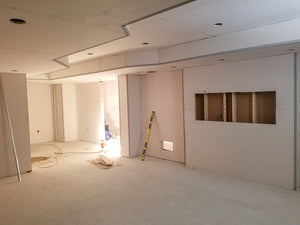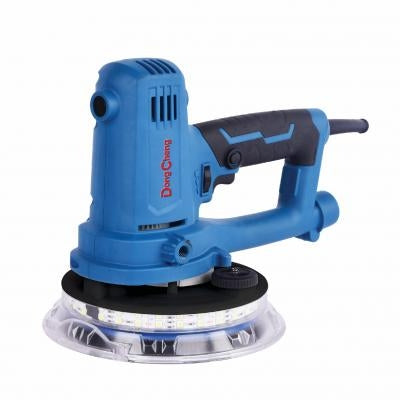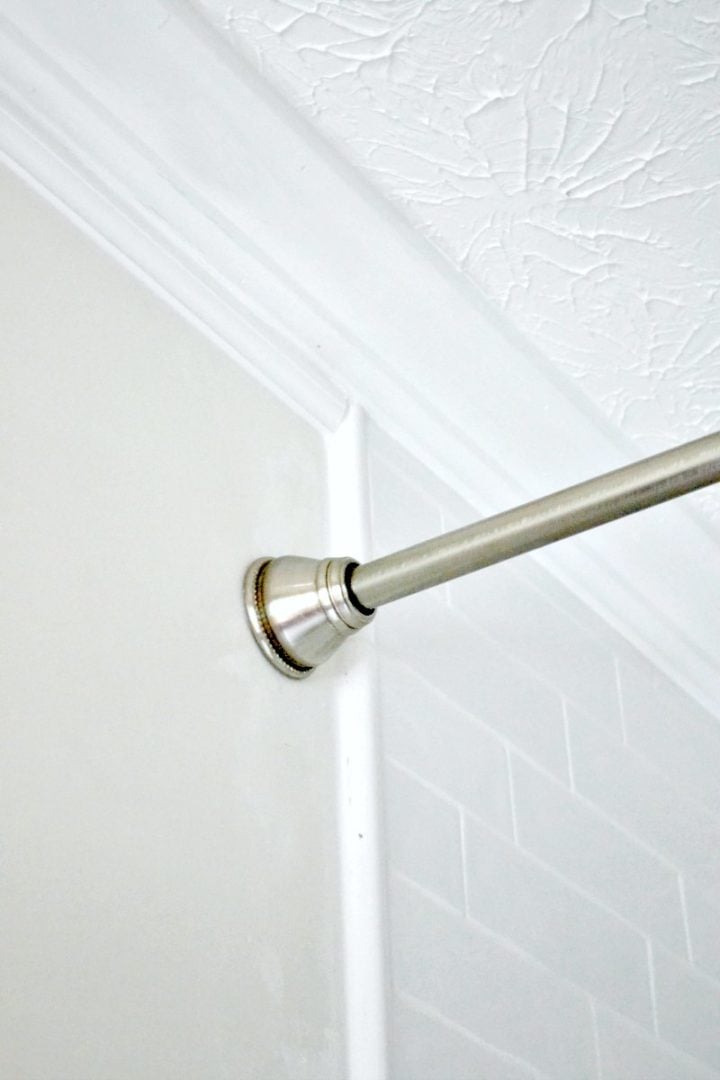
Sanding plaster is an important step in preparing walls for paint. You need to ensure that you are familiar with the proper procedure before you begin sanding your walls. You also have to make sure you choose the right tools. It doesn't matter if you use a power sander (or a hand-sander), there are some things you should do to ensure smooth results.
The first step is to determine the hardness of plaster. This will let you know how many coats to apply. If the plaster is too hard, you may need to use a concrete sander. You can also use fine sandpaper to sand down the surface.
Before you start sanding plaster, be sure to select a sanding mat that is appropriate for the wall. You will get the most efficiency with a diamond-sanding pad. You can use a regular Sanding Pad if you have a soft plaster.

A sponge sander and a hand sander are also options. These sanders make it easy to repair any sanding scratches. A handheld lamp is a great way to lighten your work. To buff the plaster, you can also use a metal trowel.
After you have sanded plaster to your desired level you can paint your walls. You may apply several coats, depending on the paint type. After the paint dries, you can begin applying a layer of joint compound. It can be used on ridges or gouges to fill in depressions.
A particle mask is required if you are going to sand plaster using a power drill. Dust can get in your lungs and irritate your mucous membranes. This can then spread throughout your house.
It is easy to collect dust from plaster sanding projects by using an industrial vacuum. It is important to clean it every 10 minutes. You can also cover your sanding area with plastic drop cloths or plastic hair covers. Keep the doorways and windows closed to prevent sanding plaster from contaminating the rest of your home.

After you are done sanding, you should be sure to seal any cracks or pits you find. You can then fill in the cracks using a thin layer surface filler. Finally, smoothen the filler by using a wide blade filling tool.
You should buy an orbital polisher if you intend to sand plaster on a large area. This machine offers high-efficiency and works well within tight corners. You can also purchase portable cable sanders. They can provide a greater surface coverage and are ideal for commercial work. They are mounted on the sanding heads. The sanders can also be connected to an industrial vacuum cleaner thanks to an integrated dust extractor.
Plaster sanding may be a complicated task. It can be difficult because it requires precision and accuracy. You can make the task much simpler by using a drywall sander.
FAQ
How important it is to be pre-approved for loans?
Pre-approval is crucial for getting a mortgage. It gives you an idea how much money it will cost. It can also help you determine your eligibility for a particular loan program.
Can I remodel my whole house by myself?
If you can do it yourself, why pay someone else when you could save money and time?
You may love DIY but there will come a time when you can't do it all by yourself. There could be too many variables to manage.
If you have an older home, for example, the wiring might be outdated. To ensure safety and reliability, you will need to hire an electrician.
Consider that you may not be able repair any structural damage that might have occurred during the renovation.
You may not have the proper tools to complete the job. If you want to install a new kitchen faucet, you will need a plumber's serpent, which is a tool that clears clogged pipes.
Plumbing codes also require that you have a licensed plumber work on your project.
You need to be able to do the job before you take on any large tasks.
If you are unsure whether you can tackle the job yourself, ask for help from friends and family members who have done similar projects before.
They can help you determine the right steps and where you can find out more.
Do I need permits to renovate my house?
Yes. You will need permits to start any home renovation project. In most cases, you will need a building permit and a plumbing permit. A zoning license may also be needed depending on the type or construction you are doing.
How can I avoid being taken advantage of when I renovate my house?
The best way to avoid being ripped off is to know what you are paying for. It is important to carefully read all terms and conditions before signing any contract. Do not sign unsigned contracts. Always ask for copies of signed contracts.
How much does it set you back to renovate your house?
Renovations can cost from $5,000 to $50,000. Most homeowners spend around $10,000 to $20,000 on renovations.
Statistics
- ‘The potential added value of a loft conversion, which could create an extra bedroom and ensuite, could be as much as 20 per cent and 15 per cent for a garage conversion.' (realhomes.com)
- The average fixed rate for a home-equity loan was recently 5.27%, and the average variable rate for a HELOC was 5.49%, according to Bankrate.com. (kiplinger.com)
- A final payment of, say, 5% to 10% will be due when the space is livable and usable (your contract probably will say "substantial completion"). (kiplinger.com)
- They'll usually lend up to 90% of your home's "as-completed" value, but no more than $424,100 in most locales or $636,150 in high-cost areas. (kiplinger.com)
- Most lenders will lend you up to 75% or 80% of the appraised value of your home, but some will go higher. (kiplinger.com)
External Links
How To
5 Things You Should Know Before Starting Your House Renovation
-
Is this something you really want? If you're planning on embarking on major home improvement projects like renovating your kitchen, bathroom, or building a brand new house, it's certain that you'll need to have some assistance. But if you don't feel confident enough to tackle such a large task alone, then you might want to reconsider doing so. It could take up a lot of your time and money, and you won't get any real benefits from it. Instead, hire someone who has experience in this field to assist you. These people will save you time, stress, and provide a beautiful place to live in.
-
What amount should I spend on a renovation project? This might sound obvious, but spending too much money on a renovation could lead to more problems. Because you will likely end up paying most of the costs back at the conclusion of the day. So if you've got a budget in mind, stick to it! If you don't, you might end up spending a lot of money and not receiving anything.
-
Should I hire professional tradespeople or DIY? - Although there's no right answer, we would recommend hiring professionals if you have the means. You can trust them to provide you with advice and guidance on how to proceed with your job. They can install the plumbing correctly and make sure that it is done safely. DIY projects often involve a lot trial and error. You'll learn a lot the hard way. There will be many problems along the way.
-
What are my options? Do not underestimate the costs of a renovation. Even if your budget is tight, you may need to borrow money to cover costs. It is also important to consider the selling price of your current property when you plan on selling it soon after you have completed the renovations.
-
What is the best place to start? There are no right or wrong places to begin when choosing where to start. We recommend that you pick something that you are passionate about. If you enjoy what you do, you will be more motivated to continue working and less likely procrastinate. Also, avoid places that are difficult to maintain. If your living area is constantly cluttered with dust and dirt, you should not attempt to redesign it.